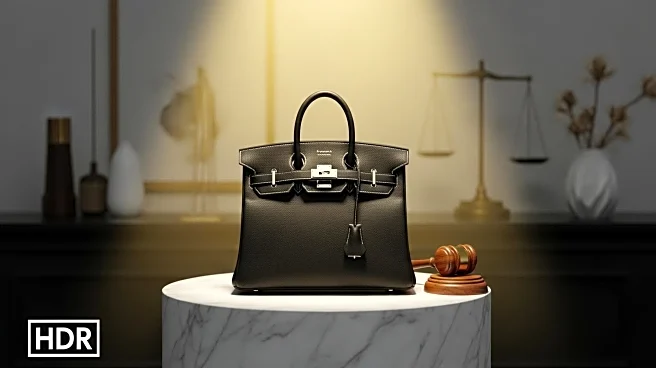What's Happening?
French luxury brand Hermès has successfully convinced a U.S. judge to dismiss a lawsuit for the second time, which alleged that the company violated antitrust laws by requiring customers to spend significant amounts on other products to qualify for purchasing its Birkin handbags. The lawsuit, filed by three Hermès shoppers in California, claimed that Hermès engaged in 'tying' practices, restricting access to the bags based on customers' purchase history. U.S. District Judge James Donato ruled that reserving the Birkin bag for high-paying customers does not constitute an antitrust violation. The dismissal was made with prejudice, preventing the lawsuit from being refiled.
Why It's Important?
The ruling is significant for luxury brands, as it reinforces their ability to control the exclusivity and distribution of high-demand products without breaching antitrust laws. This decision may impact how luxury brands structure their sales strategies, potentially encouraging similar practices among competitors. Consumers seeking access to exclusive products may face continued challenges, as brands maintain control over their distribution channels. The case highlights the balance between exclusivity and consumer rights within the luxury market.
What's Next?
With the lawsuit dismissed, Hermès can continue its current sales practices without legal hindrance. However, the decision may prompt further scrutiny from consumer advocacy groups or inspire similar legal challenges against other luxury brands. Hermès and other companies may need to reassess their customer engagement strategies to mitigate potential backlash from consumers who feel excluded by such practices.










